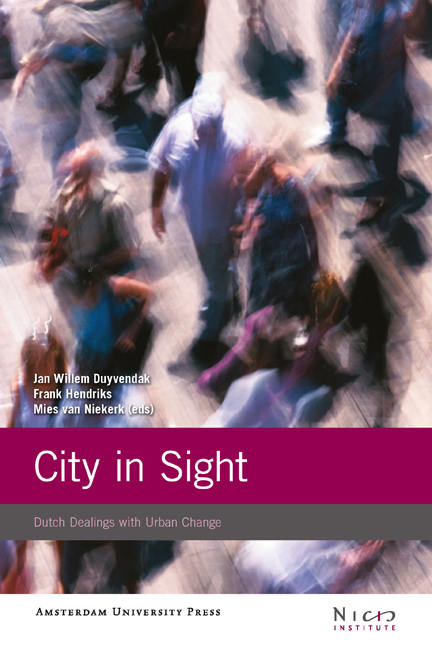Book contents
- Frontmatter
- Contents
- Acknowledgements
- Cities in Sight, Inside Cities: An Introduction 9
- Part I Urban Transformations and Local Settings
- Part II Urban Citizenship and Civic Life
- Part III Urban Governance and Professional Politics
- The Dutch Orange and the Big Apple: A Comparative Commentary
- References
- Notes on Contributors
- Index
3 - The Effects of State-Led Gentrification in the Netherlands
Published online by Cambridge University Press: 19 January 2021
- Frontmatter
- Contents
- Acknowledgements
- Cities in Sight, Inside Cities: An Introduction 9
- Part I Urban Transformations and Local Settings
- Part II Urban Citizenship and Civic Life
- Part III Urban Governance and Professional Politics
- The Dutch Orange and the Big Apple: A Comparative Commentary
- References
- Notes on Contributors
- Index
Summary
Introduction
In this chapter we present our most recent research on the effects of the Dutch urban renewal programs based on two research projects. The first project (Veldboer et al. 2008) searched for the ideal middle class: which members of the middle class were most likely to be tolerant of and helpful to poor residents in urban renewal areas. The second research project (Van der Graaf, 2009) explored the emotional ties of residents in deprived neighborhoods in the Netherlands and the changes these residents experienced in their attachment to the neighborhood when urban renewal programs were operating in their area.
Although both projects explored quite different subjects, they both comment on the dominant strategy of urban renewal in the Netherlands: a serious upgrading of the housing stock in deprived areas to increase the share of the middleclass. This can be classified as a form of state-led gentrification by which the Dutch government and local actors attempt to improve not only the neighborhood but also the poor residents living in it, by providing them with more wealthy neighbors who can lend them a hand and show them a way out of deprivation. These arguments are familiar with the international found motives for social mix (see Sarkissian 1976). This social mix strategy is heavily criticized by scientists in and outside the Netherlands, who argue that state-led gentrification is doing more harm than good for poor residents. To shed more light on this debate, we researched both sides of the argument: the first project takes the proponents’ logic as a starting point and asked which middleclass groups would be more helpful in supporting their poor neighbors, while the second project starts with the critics’ argument that gentrification causes displacement instead of more opportunities for poor residents in their neighborhood. How is the place attachment of these residents affected by urban renewal? Together, the two research projects present a fuller picture of the effects of state-led gentrification in the Netherlands.
We will discuss the main findings, starting in paragraphs three to five, with the potential lifting effects of urban renewal.
- Type
- Chapter
- Information
- City in SightDutch Dealings with Urban Change, pp. 61 - 80Publisher: Amsterdam University PressPrint publication year: 2009



